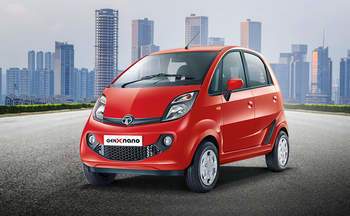The automotive industry in South Asia is quickly evolving, with electric vehicles (EVs) gaining grip as an eco-friendly alternative to traditional burning engine vehicles. Among these, the Tata Nano EV has rise up as a noteworthy contender in the Indian market, known for its affordability and practical features. However, when we compare it to similar spec cars in Pakistan, a significant price disparity becomes apparent.
Tata Nano EV: Specifications and Pricing in India
The Tata Nano EV is priced at approximately 5 lakh INR, translating to around 15-16 lakh PKR. This pricing strategy positions it as one of the most cost-effective electric vehicles available in the Indian market, occupation to a wide demographic, including budget-conscious consumers and Eco-conscious urban journey
Technical Specifications
Range: A single charge may cover 150–200 miles with the Tata Nano EV. This range makes it a sensible option for city dwellers since it is enough for short interstate journeys and everyday urban transportation.
Battery: The vehicle is powered by a 21.5 kWh lithium-ion battery, known for its efficiency and strength This battery capacity ensures a balance between range and cost.
Charging Time: The Nano EV supports both standard and fast charging options. A standard charge takes approximately 6-8 hours, while a fast charge can replenish the battery in about 3-4 hours, providing flexibility and convenience for users.
Motor: It features a 48V electric motor that delivers smooth change and a top speed of 85 km/h. This motor is well-suited for urban driving conditions.
Features: The car is equipped with essential amenities such as air conditioning, power windows, an Anti-lock Braking System (ABS), dual airbags, an infotainment system with a touchscreen, and regenerative braking. These features enhance safety, comfort, and overall driving experience.
Comparable Car in Pakistan: Specifications and Pricing
Technical Specifications
Range:Similar to the Tata Nano EV, the comparable car in Pakistan also offers a range of 150-200 km per charge.
Battery: It features a 21.5 kWh lithium-ion battery, mirroring the specifications of the Nano EV.
Charging Time:Charging times are consistent with the Nano EV, requiring 6-8 hours for a standard charge and 3-4 hours for fast charging.
Motor:The vehicle includes a 48V electric motor, providing a top speed of 85 km/h, identical to the Tata Nano EV.
Features:The car comes equipped with air conditioning, power windows, ABS, dual airbags, an infotainment system with a touchscreen, and regenerative braking, paralleling the features offered by the Nano EV.
Price Disparity and Implications
The most significant difference between the Tata Nano EV in India and the comparable car in Pakistan is the price. At 5 lakh INR (15-16 lakh PKR), the Tata Nano EV is significantly more affordable than the Pakistani equivalent, which costs around 40 lakh PKR.
Higher import duties and taxes in Pakistan significantly increase the overall cost of vehicles.Pakistan’s automotive market has fewer local manufacturers and a higher reliance on imports, leading to increased prices due to shipping, handling costs, and import duties.
India’s larger market allows manufacturers to benefit from economies of scale, reducing production costs and enabling lower prices for consumers.
The Future of Electric Vehicles in South Asia
India’s Growing EV Market
India’s electric vehicle market is poised for significant growth, driven by government incentives, increasing environmental awareness, and advancements in technology. The Tata Nano EV is a prime example of how affordable electric vehicles can capture market share and drive the transition to sustainable transportation.
Challenges and Opportunities in Pakistan
Pakistan faces challenges in making electric vehicles affordable and accessible to a broader segment of the population. However, there are opportunities for growth if the government adopts supportive policies and encourages local manufacturing. Reducing import duties and providing incentives for electric vehicle adoption could help bridge the price gap and promote the use of eco-friendly transportation options.
Cooperation and Invention
Mutual benefits could result from collaboration between the automotive industries of Pakistan and India. By exchanging best practices and technical innovations, both nations may be able to grow their electric car markets. Additionally, promoting innovation in battery technology, charging infrastructure, and vehicle design might further cut prices and improve the entire value proposition of electric vehicles in the region.
Conclusion
There is a noted pricing difference between the Tata Nano EV in India and a comparable-spec car in Pakistan, with Pakistani buyers having to spend over three times as much for the same features and specs. This disparity emphasizes Pakistan’s need for market and governmental reforms in order to give customers greater value. The Tata Nano EV is a prime example of how competitive pricing and extensive features combined with cost-effective electric vehicles can propel market expansion and improve customer satisfaction.
Through tackling the underlying causes of the price difference, Pakistan and India may together strive towards an automotive future that is both affordable and environmentally friendly. The Tata Nano EV is proof of the viability of reasonably priced electric cars, showing that people in South Asia may adopt electric vehicles on a regular basis given the correct regulations and market circumstances.
